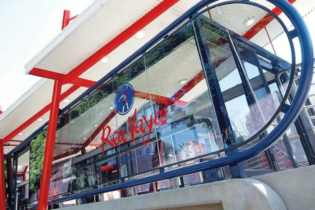The transport and logistics industry is just not ‘hip’ enough to attract talent. The industry needs complete makeover, says a Pricewaterhouse Coopers report.
- Pay is a turn-off and training is vital for survival, transport and logistics companies told
- Just 36.5% probability that people will find the sector ‘attractive’ to work in by 2030
- Nearly 70% probability that transport and logistics must face an image revamp by 2030 to survive
The report explains that an ageing workforce has led to a diversified skills gap, and more needs to be done in the industry to make it attractive to young people. Akhter Moosa, Transport and Logistics leader for PwC, Southern Africa, says: “The findings of the study are hugely significant for the transport and logistics sector showing us what must be done before the industry falls into a critical state. Poor image, poor pay and poor prospects are all perceptions that currently choke the industry. The reality is that there are rewarding, multinational opportunities out there that need tapping into.” PwC presented 15 theses to a panel of 94 senior executives from 24 countries working in business, government and the scientific area. During an eight week period the panel of experts studied the hypothesis and were asked to assess the probability of each one on a scale of 0-100%. The study found that there was a low 35.6% probability of the sector being seen as ‘hip’ and attractive to work in by 2030. There was also a 68.3% probability that firms will need to seriously change their image or brand to stay competitive in order to survive. The report states that businesses should be focusing on increasing the training programmes they offer to young recruitments. “The problem is compounded by a dearth of training programmes in many areas and an insufficient focus on learning and development within individual companies,” says the report. Skills shortage The transportation and logistics industry isn’t viewed as attractive by most job seekers. Most transport jobs are also considered to be low-paying dead-ends. The survey confirms the shortage of skilled employees in South Africa and that transportation and logistics companies are lagging behind other sectors in terms of recruiting and hiring staff. The panel of experts pointed out that the industry is having trouble attracting young and skilled people, largely due to the sector’s poor image. The experts also noted a number of other factors that are preventing the industry from attracting a sufficient pool of candidates, including low wages and less than optimal work environments. However, some experts believe that ongoing globalisation and increasing flows of goods will assist in boosting the visibility of the sector. Some panellists are also hopeful that the increasing number of universities and postgraduate programmes focusing on logistics topics will also help fill the future gap.
Compensation and incentives
The transportation and logistics industry pays lower wages than other companies do in other sectors. The study found that it was difficult to compare wage levels between countries as survey methodologies differ widely. However, it found a consistent pattern that in many countries wage levels in the sector rate far down the list compared to other industries. For instance, transportation and storage salaries are 42% lower than in the best-paying industry. Furthermore, within transportation and logistics there are significant variations in salary levels between different employment groups. In this industry, job profiles range from pilots and seafarers to truckers and rail drivers. The skills needed and working conditions vary significantly, and so do the corresponding wages and benefits. Wages are not the only form of compensation that matters. Benefit packages are becoming increasingly important, although they differ from country to country. Moosa says: “Transportation and logistics companies need to take a critical view of their remuneration systems and benchmark their salaries against their peers and other industries and recognise salary alone isn’t the only way to compensate employees.” The panel of experts predict that the sector will need to offer above-average salaries compared to other industries in 2030 in order to bridge the current gap and make the sector more attractive. When it comes to requiring only basic skills, the panellists think that it’s likely that wages will stay low. On the other hand, they think for management functions and highly skilled positions, such as those in supply chain management, the industry will need to offer above-average salaries in order to attract ‘smart people’. ‘Since every industry competes for the best employees, transportation and logistics companies need to differentiate themselves,” says Moosa. A diverse workforce With older workers making up a greater part of the overall talent pool, companies will need to rely on them more. The panel of experts thinks that companies in the transport and logistics sector will be able to adapt work environments to the needs of older workers by 2030 in order to avoid risk to productivity and quality. The report points out that a number of technological innovations and advances in material handling systems are already taking place. Such systems tend to make some types of workplaces more ‘elder-friendly’ although companies may be more motivated by concrete calculations around increasing productivity and gaining technological advantage than they are about how such systems affect their people. Probability ratings were less than 50% when the panel of experts considered if women would play a more active, and senior, part in transport and logistics firms, and also if the industry would be more diverse in comparison to other sectors, by 2030. Moosa says: “Logistics companies in emerging countries need to invest heavily in training, development and education to prepare for a younger workforce. Those in developed countries will also need to incorporate these factors into their business strategies as well as working to improve their recruitment and retention methods and adapting the workplace to support an older workforce. “Jobs in this industry can evolve into great careers for people but the image must change, and soon.”







